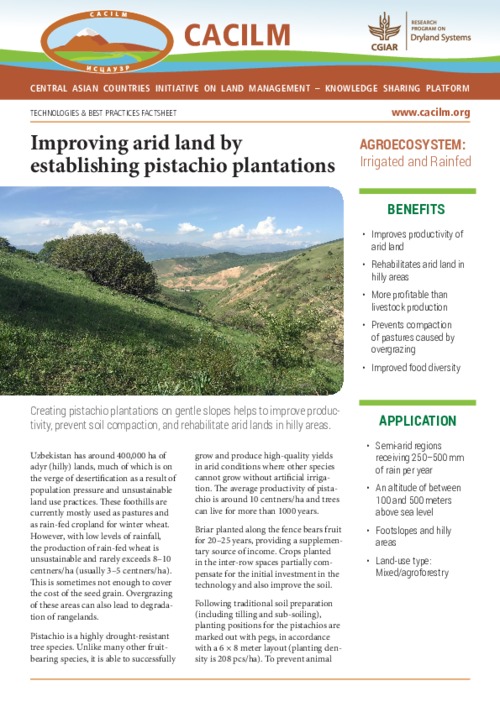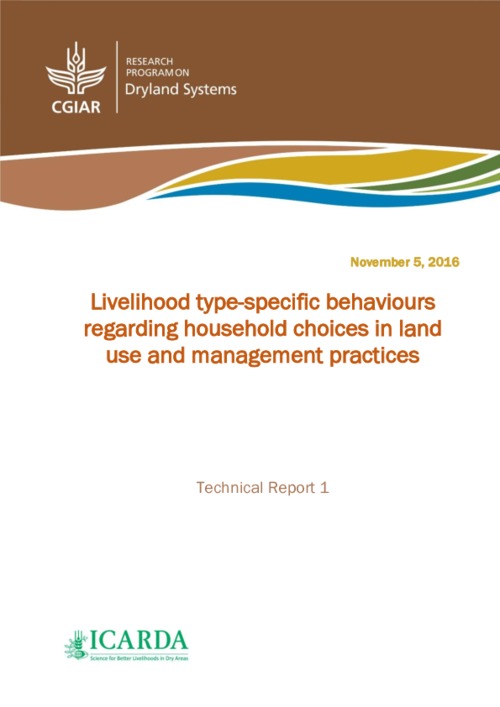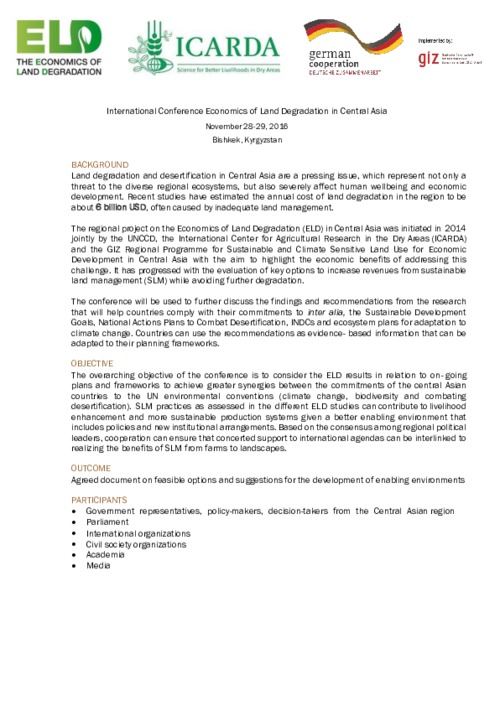Location
The International Center for Agricultural Research in the Dry Areas (ICARDA) was established in 1977. It is one of 15 such centers supported by the CGIAR. ICARDA’s founding mandate to promote agricultural development in the dry areas of developing countries remains highly relevant today.
ICARDA works with a tight focus on the problem-solving needs of resource-poor farmers, achieving this through the in-field delivery of its research outputs. Although global food production has increased by 20 per cent in the past decade, food insecurity and poverty remain widespread, while the natural resource base continues to decline.
International research centers such as ICARDA, which have helped drive previous improvements, continue to deliver new technologies to support sustainable growth in agriculture, and crucially, to work with a wide range of partners to accelerate the dissemination of these technologies.
ICARDA’s biggest strength is its staff – 600 highly skilled men and women from 32 countries. Our research and training activities cover crop improvement, water and land management, integrated crop-livestock-rangeland management, and climate change adaptation.
Other interventions include:
- Water harvesting - supplemental irrigation and water-saving irrigation techniques
- Conservation agriculture methods to reduce production costs and improve sustainability
- Diversification of production systems to high-value crops – horticulture, herbal and medicinal plants
- Integrated crop/rangeland/livestock production systems including non-traditional sources of livestock feed
- Empowerment of rural women – support and training for value-added products.
The ICARDA genebank holds over 135,000 accessions from over 110 countries: traditional varieties, improved germplasm, and a unique set of wild crop relatives. These include wheat, barley, oats and other cereals; food legumes such as faba bean, chickpea, lentil and field pea; forage crops, rangeland plants, and wild relatives of each of these species.
ICARDA’s research portfolio is part of a long-term strategic plan covering 2007 to 2016, focused on improving productivity, incomes and livelihoods among resource-poor households.
The strategy combines continuity with change – addressing current problems while expanding the focus to emerging challenges such as climate change and desertification.
We work closely with national agricultural research systems and government ministries. Over the years the Center has built a network of strong partnerships with national, regional and international institutions, universities, non-governmental organizations and ministries in the developing world and in industrialized countries with advanced research institutes.
THE ‘DRY AREAS’
Research and training activities cover the non-tropical dry areas globally, using West Asia, North Africa, Central Asia and the Caucasus as research platforms to develop, test, and scale-out new innovations and policy options.
Dry areas cover 41 per cent of the world’s land area and are home to one-third of the global population. About 16 per cent of this population lives in chronic poverty, particularly in marginal rainfed areas. The dry areas are challenged by rapid population growth, frequent droughts, high climatic variability, land degradation and desertification, and widespread poverty. The complex of relationships between these challenges has created a "Poverty Trap."
Members:
Resources
Displaying 171 - 175 of 431Improving arid land by establishing pistachio plantations
Brief on Improving arid land by establishing pistachio plantations
Kazakhstan Case Study Policy Brief
Policy recommendations on sustainable land management in Kazakhstan, including the costs and benefits of alternative management options. Conclusion: More sustainable land management in desert forests can lead to economic and environmental benefits
Livelihood type-specific behaviours regarding household choices in land use and management practices
This report focuses on the analysis of livelihood type-specific behaviors regarding household
choices in land use and management practices. This is a contribution to the overarching
framework of “Integrated Systems Analysis and Modeling in Aral Sea Region” activity within
Dryland System CRP. The report is based on further analysis of baseline data collected within
“Innovation Platform” activity, surveyed and reported in 2015 (Rudenko 2015). Preliminary
analysis of household survey data including description of the study area and the content of
ELD: The economics of land policy, planning and practice
Land is front and center of the sustainable
development and climate change debates. A
goal dedicated to Land Degradation Neutrality
(LDN) (see Box 1) was endorsed in 2015 by the
United Nations (UN) General Assembly as part
of the Sustainable Development Goals (SDGs)
2015–2030 framework, following on from the
UN’s Millennium Development Goals of 2000
(UN General Assembly, 2015). SDG 15 aims to
“protect, restore and promote sustainable use
of terrestrial ecosystems, sustainably manage
Closing workshop agenda
Agenda of the Closing workshop on 'the assessment of the economics of land degradation in Central Asia' project, on 28-29 November 2016







